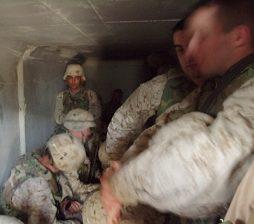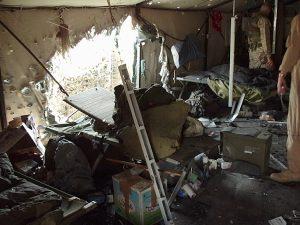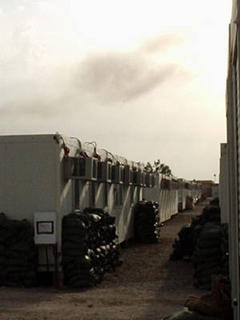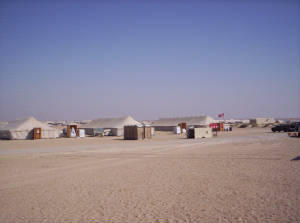A Black Sheep in Wolves' Clothing
This feeling of being different, of not being one of the crowd, has been a common theme throughout my life in the military. I have never been of the “ooh-rah, kill, kill, blood makes the grass grow” mindset, and frankly I’m very thankful that all the bombs I dropped as a Harrier pilot were on practice targets and not other people. This, if nothing else, sets me apart from my peers (or at least my perception of my peers).
In late 2001, three things happened that fundamentally changed my self-awareness, my view of the world, and my attitude toward my career as a Marine. The first event was the terrorist attacks of September 11. I was appalled, shocked, and saddened by this carnage, but at the same time I was encouraged by the worldwide outpouring of support and sympathy: “we are all Americans now.” I had high hopes that our national response would be reasoned, careful, and proportionate. It seemed to me we had an historic opportunity to create a new paradigm of global cooperation and unity, or that we should at least try not to squander this newfound goodwill. The last few years have shown otherwise.
A month after 9/11, my daughter was born. It seemed like an act of faith to bring this fragile new life into the world, not that we had any choice by then. What kind of world were my children to grow up in? What was I doing to make it a better place for them, and for all children? It was a scary time to be a parent, but my wife and I committed ourselves to raising our children with love and joy rather than with fear and hatred.
The seminal occurrence in this trio of events was when I walked through the doors of a Unitarian Universalist sanctuary for the first time. It was like coming home - I had finally found something I didn’t even know I was searching for. By the simple step (but a leap for me) of going to church, I began a journey of self-discovery. I reawakened a spirituality and social conscience that had been lying quietly inside me as I cruised, unpondering, through the years. I didn’t know it at the time, but walking through those doors would totally change the trajectory of my life.
During this period of growth and change, I was a student at the Naval Postgraduate School (NPS). Although of course I spent time in class and studying, I had lots of time for my family, my congregation, and myself. It was a tremendous opportunity to devote myself to my own personal spiritual growth and my expanding role as a father, and to learn how to be part of a community of faith. I also read and learned, developing a new perspective on history, politics, and war.
As I grew more fully into awareness of myself and a different understanding of my military legacy, I began to seriously question my life and career as a Marine. What on earth drove me to go to the Naval Academy and become a Marine jet pilot? Why did I stick with it for so long? How could I reconcile my evolving values and beliefs with my military profession?
This internal questioning intensified into the spring of 2003, to the point where I seriously explored applying for Conscientious Objector (CO) status. I decided not to for several reasons. It is a long process that the military has made intentionally difficult, especially for officers. It could have also made life difficult for my family, and if I were discharged, I would have served over 15 years with nothing to show for it. Finally, even being given CO status wouldn’t keep me from being deployed in a “noncombatant” role, which in the Marine Corps only means someone whose primary role is not as a “trigger puller.” The reality of Marines in occupied Iraq, of course, is that everyone is a potential combatant.
In the end, after much deliberation, I decided that the best case outcome of applying for CO status was not worth the risk of the worst case. I found an uneasy equilibrium between the two aspects of my life - my values and my profession – and hoped for the best. I figured that given my current situation (graduate school followed by a 3-year payback tour at Headquarters Marine Corps), it was unlikely that I would be deployed, and the best thing for my family would be to avoid the uncertainties of the CO application process and outcome.
 Obviously I figured wrong, and here I am, a black sheep in wolves’ clothing.
Obviously I figured wrong, and here I am, a black sheep in wolves’ clothing.























